First Book Friday: Laura Anne Gilman
Welcome to First Book Friday!
Laura Anne Gilman (suricattus on LJ) has been an editor, a writer, a writer by another name, and is also an editor again. Basically, when she talks about the writing biz, people listen. Her latest series is the Vineart War Trilogy, which uses a wine-based magic system.
In her free time, she fights crime as one of the Teenage Mutant Ninja Meerkats.
She notes that for her First Book Friday post, she chose to wrote about the “first original solo venture that I kept the copyright to, not a media tie-in.”
#
First, I wrote 100,000 words. Then it was rejected by every single major publishing house.
No, wait, let me back up a bit.
First, way back when I was still a full-time editor and mostly writing short fiction, I got involved with a real-time, net-enabled role-playing game, combining magic and spies and science and whathaveyou. And then the game fizzled out, and I was left with this character who had developed a very real voice in my head.
No, it wasn’t Wren Valere, the heroine of my book (and eventual series) but Sergei Didier. Yeah, Sergei started out as a hard-as-nails spymaster. If you look close, he still has that core…
So I figured, okay, should do something with him. He needs a foil … and so Wren appeared.
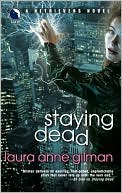 But the addition of Wren into the story changed Sergei, and by the time I had finished creating their world and adventures around them, it had become something entirely new, that I was utterly in love with. And that was Staying Dead [B&N | Mysterious Galaxy | Amazon].
But the addition of Wren into the story changed Sergei, and by the time I had finished creating their world and adventures around them, it had become something entirely new, that I was utterly in love with. And that was Staying Dead [B&N | Mysterious Galaxy | Amazon].
My agent and I took it, and the proposal for two more novels in the series, to the various publishing houses, except, for obvious reasons, the one I worked for.
And every single one of them rejected it. Some with a flat no, some with a “could you…” revisions request. (At one point I had rewritten the first three chapters to make it work as a YA title. No go). At the time — the early 2000’s — urban fantasy without a sexy vampire was just not getting editors’ attention.
I was still an editor myself, then, and I knew what the odds were after that, but wasn’t going to give up … okay, maybe I was a little disheartened and wailing into my booze. But in the meanwhile I had put together another more traditional fantasy proposal, and it was out on submission as well, including to a new imprint starting up, that had been looking for romantic fantasy.
The editor and I were friends, and had lunch on occasion, griping about our industry. And during that lunch I mentioned the proposal she STILL had on her desk after many many months, and mentioned the other one that was currently not making the rounds.
“Really?” she said, when I described it. “Send it to me.”
“But you were only looking for traditional, historical fantasy,” I said.
“Send it to me.”
And so we did. And Luna bought it. And two more. And then another three. And then a spin-off series. By the end of 2012, there will be twelve books in the Cosa Nostradamus, plus a short story collection.
Not bad for a first book that couldn’t find a home…






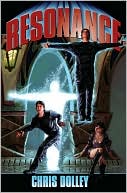 For me, Resonance was that book. The special one that writes itself. It came to me in 2000 when three ideas that I’d had kicking around in my head for years suddenly coalesced and I realised they weren’t three separate ideas, but three sides of the same story. From there, the book flowed – I outlined it in a matter of hours and the more I fleshed out the book, the more I realised how perfectly the three ideas meshed. For years I’d had a narrator without a story; a mechanism without a plot; and a plot without a purpose. Now I had a book.
For me, Resonance was that book. The special one that writes itself. It came to me in 2000 when three ideas that I’d had kicking around in my head for years suddenly coalesced and I realised they weren’t three separate ideas, but three sides of the same story. From there, the book flowed – I outlined it in a matter of hours and the more I fleshed out the book, the more I realised how perfectly the three ideas meshed. For years I’d had a narrator without a story; a mechanism without a plot; and a plot without a purpose. Now I had a book.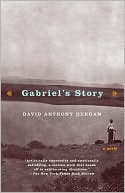 I wrote my first published novel, Gabriel’s Story
I wrote my first published novel, Gabriel’s Story 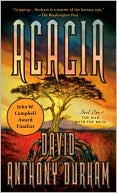 The novel took off. Suddenly, it had a plot that included murder and cattle rustling, desert chases and shootouts and a finale that tied everything together in one suspenseful moment. It was a very different book than I’d been taught to write during my MFA program. It was better.
The novel took off. Suddenly, it had a plot that included murder and cattle rustling, desert chases and shootouts and a finale that tied everything together in one suspenseful moment. It was a very different book than I’d been taught to write during my MFA program. It was better. I started to write and submit short stories in college. My parents never knew, but I chose Texas A&M University solely because it was listed in a directory of active SF/F fan groups in Starlog Magazine, and it had a student-run convention. I took a writing workshop class taught by Steven Gould through the university’s Free U, which offered classes in everything from conversational Japanese to bowling. Over the next eight years, I went to more workshops, including Turkey City, where Bruce Sterling gave me some of the best advice on what worked and what didn’t work that I’ve ever heard anybody give. I got even more into fandom, I went to SF cons and helped run them, I wrote fanfiction for fun. Eventually I was in a writers group with Steven Gould, Laura Mixon, and Rory Harper that met regularly. I continued to write and submit short stories to magazines, and did not sell one single one.
I started to write and submit short stories in college. My parents never knew, but I chose Texas A&M University solely because it was listed in a directory of active SF/F fan groups in Starlog Magazine, and it had a student-run convention. I took a writing workshop class taught by Steven Gould through the university’s Free U, which offered classes in everything from conversational Japanese to bowling. Over the next eight years, I went to more workshops, including Turkey City, where Bruce Sterling gave me some of the best advice on what worked and what didn’t work that I’ve ever heard anybody give. I got even more into fandom, I went to SF cons and helped run them, I wrote fanfiction for fun. Eventually I was in a writers group with Steven Gould, Laura Mixon, and Rory Harper that met regularly. I continued to write and submit short stories to magazines, and did not sell one single one. About midway through the process, I got very lucky. Steve Gould had been contacted by a relatively new agent actively seeking clients, and he gave the agent my number. I talked to him on the phone, with very little idea of what I was supposed to ask or how things were going to work. I sent him the first half of the book, and he agreed to represent it when it was finished. It was kind of a shock. (If that sounds easy, I made up for it sixteen years later when I left him and went looking for a new agent. That’s a long, fraught story for another time.)
About midway through the process, I got very lucky. Steve Gould had been contacted by a relatively new agent actively seeking clients, and he gave the agent my number. I talked to him on the phone, with very little idea of what I was supposed to ask or how things were going to work. I sent him the first half of the book, and he agreed to represent it when it was finished. It was kind of a shock. (If that sounds easy, I made up for it sixteen years later when I left him and went looking for a new agent. That’s a long, fraught story for another time.) After a few years of figuring out what the hell I was doing, I had a finished novel: Rosemary and Rue
After a few years of figuring out what the hell I was doing, I had a finished novel: Rosemary and Rue 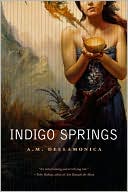 One of the coolest things about my first-novel journey was that Irene Gallo had spotted this amazing Julie Bell painting and liked it so much she went looking to see if any of their editors might want it for a particular project. Jim pounced on it immediately. He sent an electronic copy to me the week we finalized the deal, with a note that said something like, “If you don’t like it, we’ll get something else.” But I loved it! It is not only a beautiful painting, it’s very appropriate.
One of the coolest things about my first-novel journey was that Irene Gallo had spotted this amazing Julie Bell painting and liked it so much she went looking to see if any of their editors might want it for a particular project. Jim pounced on it immediately. He sent an electronic copy to me the week we finalized the deal, with a note that said something like, “If you don’t like it, we’ll get something else.” But I loved it! It is not only a beautiful painting, it’s very appropriate.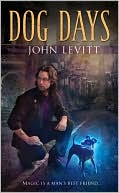 I got back a very nice rejection note, saying though my credentials were impressive, the idea just didn’t grab her. I was actually shocked; that’s how naïve I was about how the business had changed. So I reworked the query, and sent it off to my second choice, and got an enthusiastic request for a partial. This was more like it. Except, this agent passed as well – just didn’t grab him. About this time I realized things might be a bit more difficult than they used to be.
I got back a very nice rejection note, saying though my credentials were impressive, the idea just didn’t grab her. I was actually shocked; that’s how naïve I was about how the business had changed. So I reworked the query, and sent it off to my second choice, and got an enthusiastic request for a partial. This was more like it. Except, this agent passed as well – just didn’t grab him. About this time I realized things might be a bit more difficult than they used to be.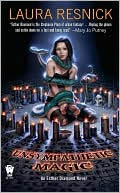 Laura Resnick
Laura Resnick find me—and if it did, I should call them immediately, because they wanted to make an offer on One Sultry Summer
find me—and if it did, I should call them immediately, because they wanted to make an offer on One Sultry Summer 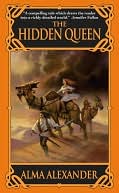 And then there was… the fantasy work. The book that eventually became the duology known in the USA as The Hidden Queen
And then there was… the fantasy work. The book that eventually became the duology known in the USA as The Hidden Queen 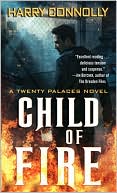 The first thing to know about selling Child of Fire
The first thing to know about selling Child of Fire